Thriving in Scotland after fleeing war in Ukraine
- Published
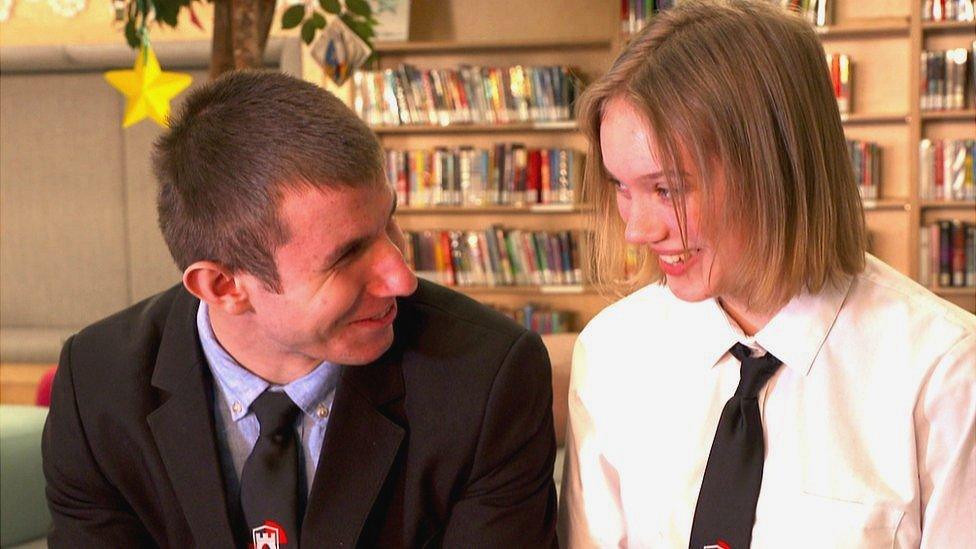
Sasha and Rita have settled into life at their Scottish school
The December 2021 update on the Dnipro Kids charity website feels like another world.
It describes plans for the annual Christmas party "in a nice restaurant" with games and personalised gifts for every child.
A recent trip to the Crazyland Indoor Play Area for the orphanage children who'd celebrated winter birthdays recounts roller skating, arcade games and a chance for the orphanage mothers to enjoy a cup of coffee and cake.
A lot can change in a year.
Since last Christmas, these children have been through unimaginable changes.
They woke up at the centre of a Russian invasion. They were uprooted from their homes, forced to flee their country.

The moment the bus arrived in Poland
They became international news when a Scottish charity which had been supporting them for years offered to bring them to Scotland.
Dnipro Kids, set up by Hibs FC supporters after a Uefa Cup match in 2005, took control.
A row over red tape saw them become a topic of debate in the House of Commons and Boris Johnson was accused of blocking their transit to the UK.
The December 2022 update is set to be lengthy.
We first encountered the Dnipro orphans in March when they crossed the border from Ukraine into Poland.
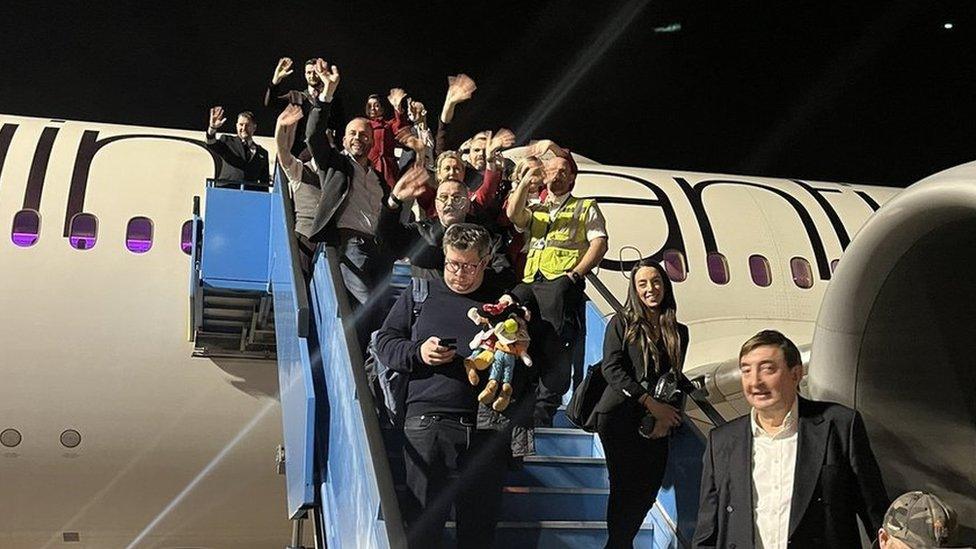
The children and their guardians travelled to by plane from Warsaw to London
After a month of recovery in Callander near Stirling, the group of 52 children and their guardians moved to Edinburgh to start school there, and English lessons.
Rita, 17, spoke to us then. She said she found Scotland "beautiful". But she was sad for the friends she had left behind in Ukraine.
Eight months on, she likes maths, computing, physics and art, and is studying for exams at school.
"It has been difficult because it's a new school and a new place," she said. "And you need to get used to new people and new circumstances.
"But I got used to it because of all the nice people who are here and helping us out.
"I absolutely love the weather and I am amazed by the education in general. You have so much choice."
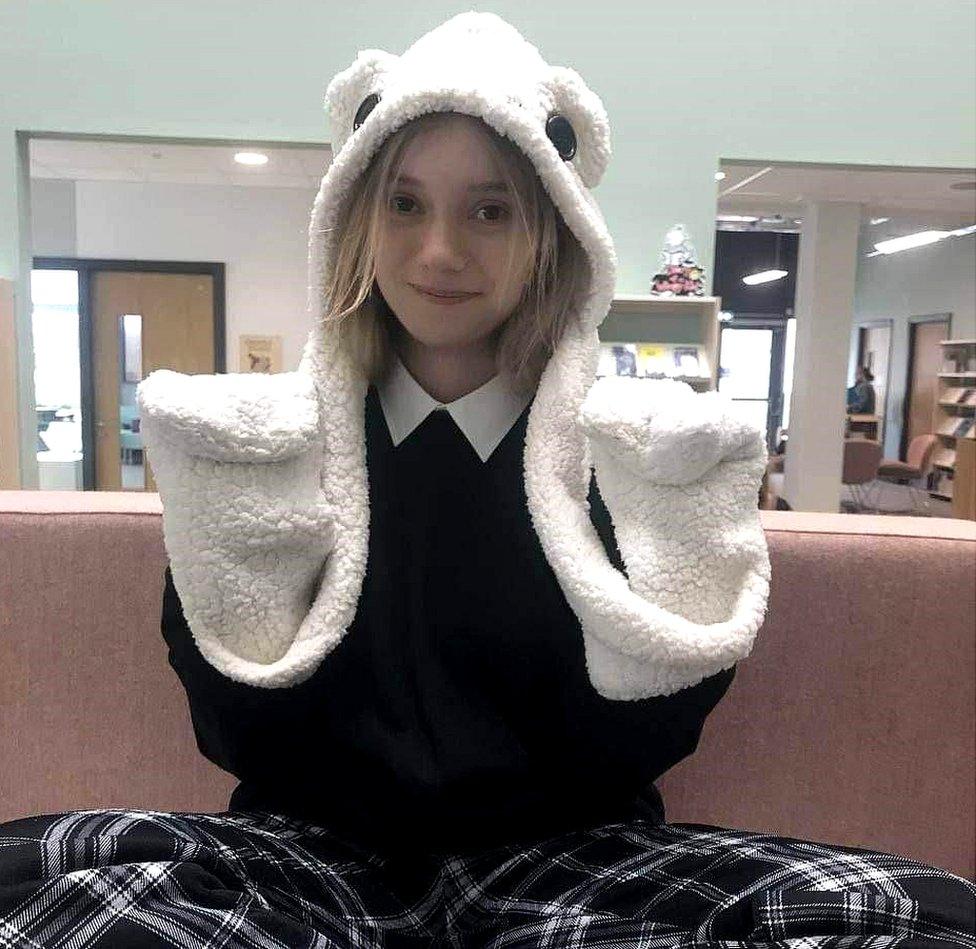
Rita has made some happy memories.
She loves Edinburgh's old buildings and has been on some fun trips.
But she still sees it as a temporary, albeit pleasant, situation.
"I miss Dnipro very much. I would love to go back and visit everybody there in Ukraine. I am not sure I would live here forever but I would want to visit this lovely country over and over again."
Christmas in Scotland is going to be a big group affair.
She said: "We are going to celebrate Christmas all together because we are one big family. We have got used to each other and it's fun."
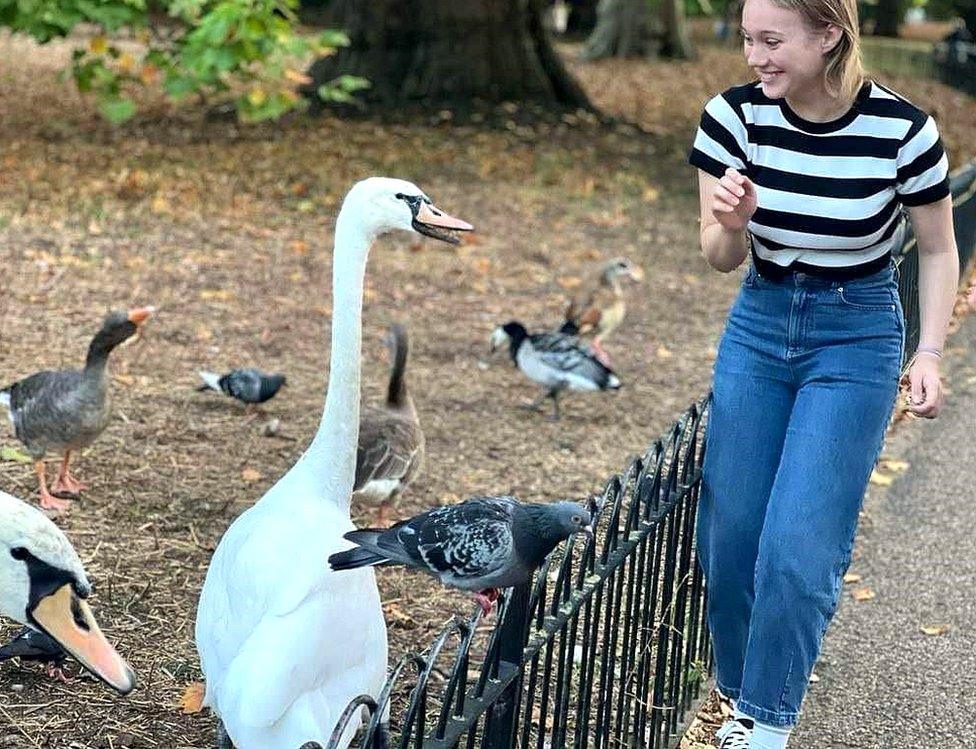
Sasha knew almost no English when he spoke to BBC News for the first time.
He spoke of the "difficult, long and uncomfortable" journey from Dnipro to Poland.
Now, he does not really need a translator any more.
He told BBC Scotland: "I am enjoying school. Now I am doing exams, I like PE, maths, woodwork, graphic communication."
He shared the secret to learning English quickly.
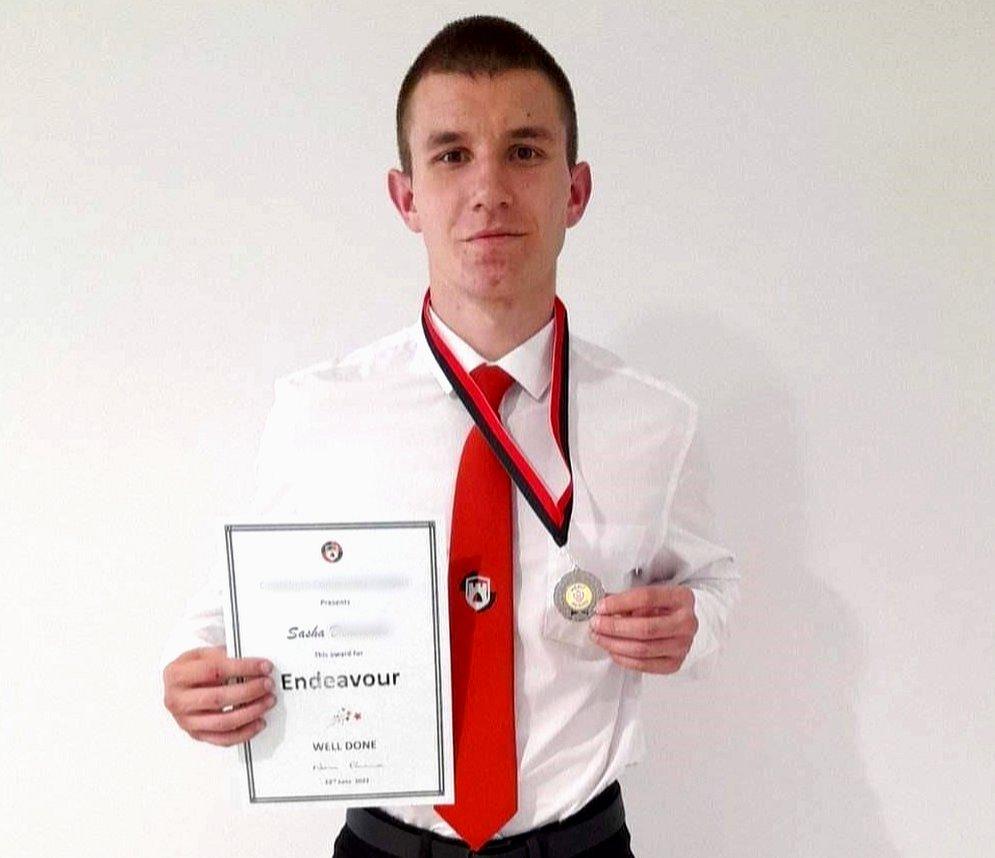
"It's practice, it's speaking with your friends.
"We talk about anything. Football, tattoos. It's watching English videos like Friends.
"Every day you need five minutes to learn 10 words - every day. That's really important because if you don't have any words, you can't speak."
Dnipro Kids evolved from a love of football, and it's football that's helping Sasha to integrate.
"I support Hibs, they are my best team just now. I watch a lot of games - Hibernian versus Rangers, versus Hearts.
The charity's boss, Steve Carr, says football has been a huge influence.
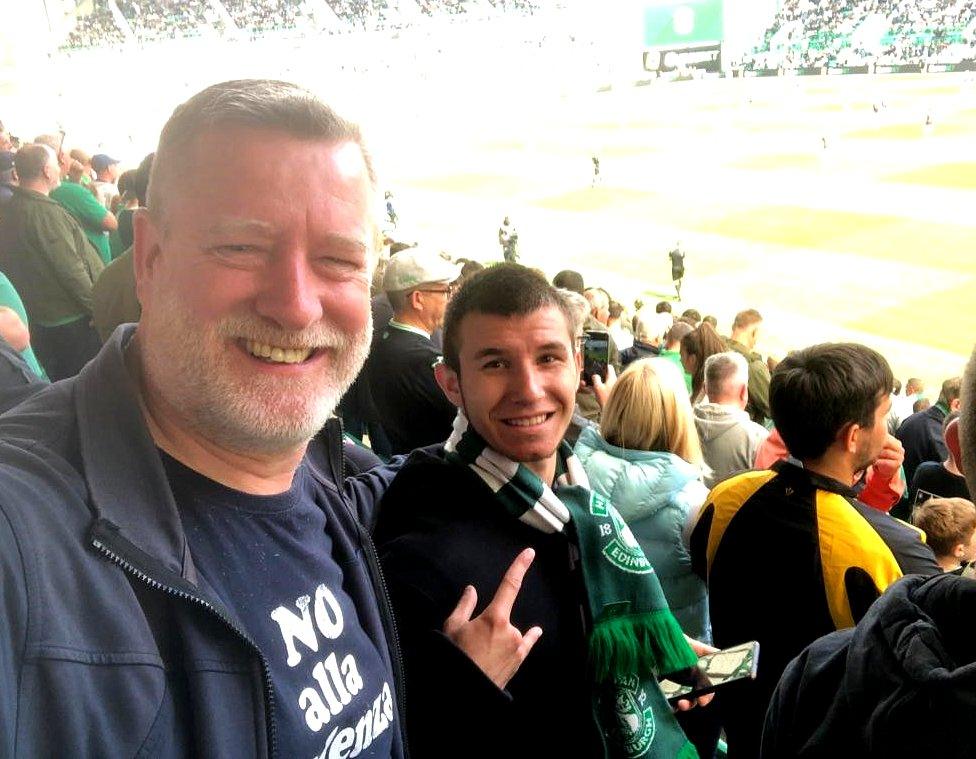
Steve Carr and Sasha at a Hibs game
"Sasha is a huge fan - he is there every game, he has got the top and the scarf and is passionate about his football," he said.
"The club has been wonderful giving us 20 tickets for every game, so there is a small Ukrainian contingent in the stand at every game."
The children were also invited to Hampden Park when Scotland were defeated by Ukraine and missed out on a World Cup play-off spot.
Mr Carr said: "They were able to sit with other Ukrainians and football is a great way to meet people and integrate into things."
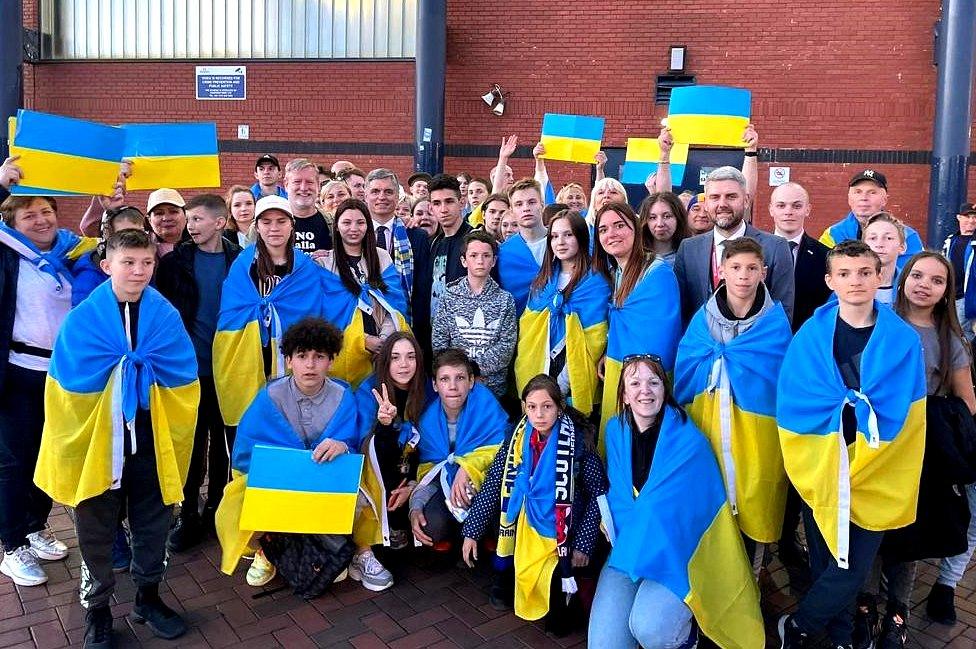
It has not been easy and it is still uncertain how long the Dnipro kids will remain in Scotland.
"We still don't know if it's going to be six weeks, six months or six years," said Mr Carr.
"Things are still really difficult in Ukraine and, even in areas where there is no actual fighting any more, there are still missiles hitting cities, taking out utilities, electricity is getting turned off.
"Even in areas deemed relatively safe, it is still a huge struggle for people."
'Trauma of a new country'
He says, on a whole, the children are "doing okay".
"These are children who have been through the care system, so over and above the trauma of what's going on in Ukraine and the trauma of a new country and trying to learn new things, they have got their backgrounds as well.
"But they are thriving."
Sasha is looking forward to Christmas in Scotland.
"Right now, we became very close with each other like one big family and we have just got used to all we have here.
"I am happy here but I really want to come back home.
"Thank you for anyone who helped the Ukrainian people."